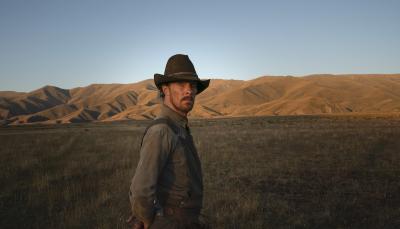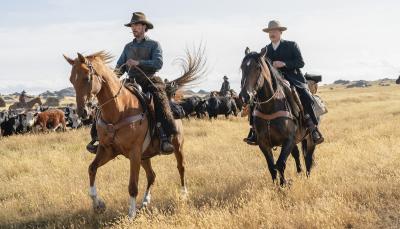'The Power of the Dog' is a Movie Meant to Be Seen More Than Once
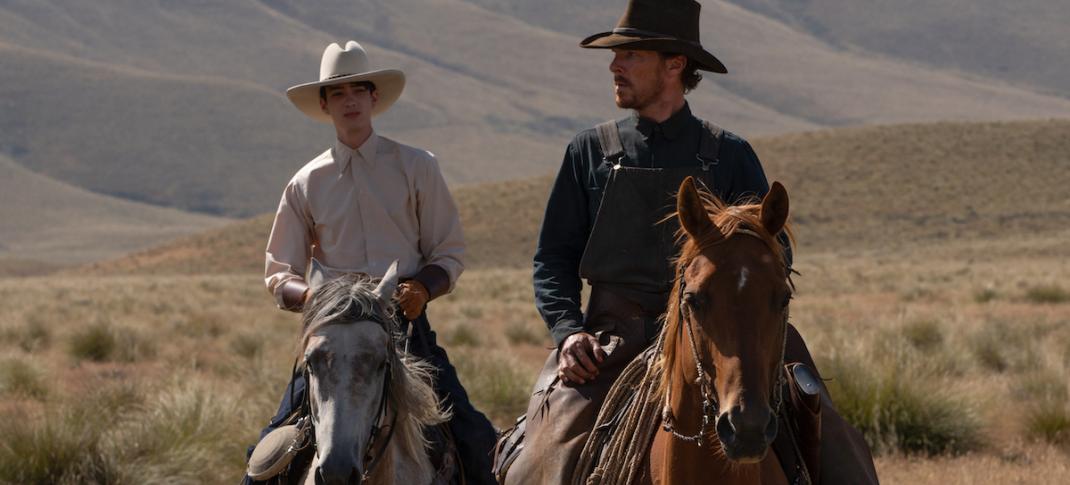
THE POWER OF THE DOG (L to R): KODI SMIT-McPHEE as PETER, BENEDICT CUMBERBATCH as PHIL BURBANK in THE POWER OF THE DOG. Cr. KIRSTY GRIFFIN/NETFLIX © 2021
© 2021 Cross City Films Limited/Courtesy of Netflix
If you're a person who follows film criticism or listens to the buzz about what movies are likely to rake in the hardware during awards season, you've probably already heard about The Power of the Dog. The first film from award-winning director Jane Campion in over a decade, this is a movie that was always going to get a lot of attention regardless of its plot or quality. And it has---grabbing 12 Academy Award nominations, including Best Picture, Best Director, and acting nods for its five main cast members. But, to what is likely the surprise of no one, the film is also completely deserving of all the accolades its received, a dark and complicated exploration of both toxic masculinity and the tropes that powered the birth of a nation, a Western that is less about the West than the men it forged in its unforgiving landscapes.
As a result, moviegoers may be surprised by The Power of the Dog's often glacial pace, its lack of a clearly defined narrative, and the tragic and often unlikeable characters at its center. (This isn't a "traditional" Western, and though there are moments where it feels eerily connected to another awards season darling, Brokeback Mountain, it's not an issue-driven political piece either.) Instead, The Power of the Dog is a story about relationships between and among a group of thoroughly broken people, fueled by simmering rage, damaging repression, and a whole lot of booze.
The film, in the most basic sense, follows the story of two very different brothers and the ranch they share. There's Phil Burbank (Benedict Cumberbatch), a cruel, snarling mess of a man who loves dirt and bullies almost everything he comes into contact with, including his own animals. His fussier brother George (Jesse Plemmons) isn't as hands-on with the ranch but has grand dreams of bettering himself in society. When he marries Rose (Kirsten Dunst), the widow who runs a local bed and breakfast on their regular cattle drive route, Phil is furious---because he resents her presence in his brother's life, because he dislikes her effeminate son Peter (Kodi Smit-McPhee) for reasons that will become clear as the film continues, because he is generally an unhappy person.
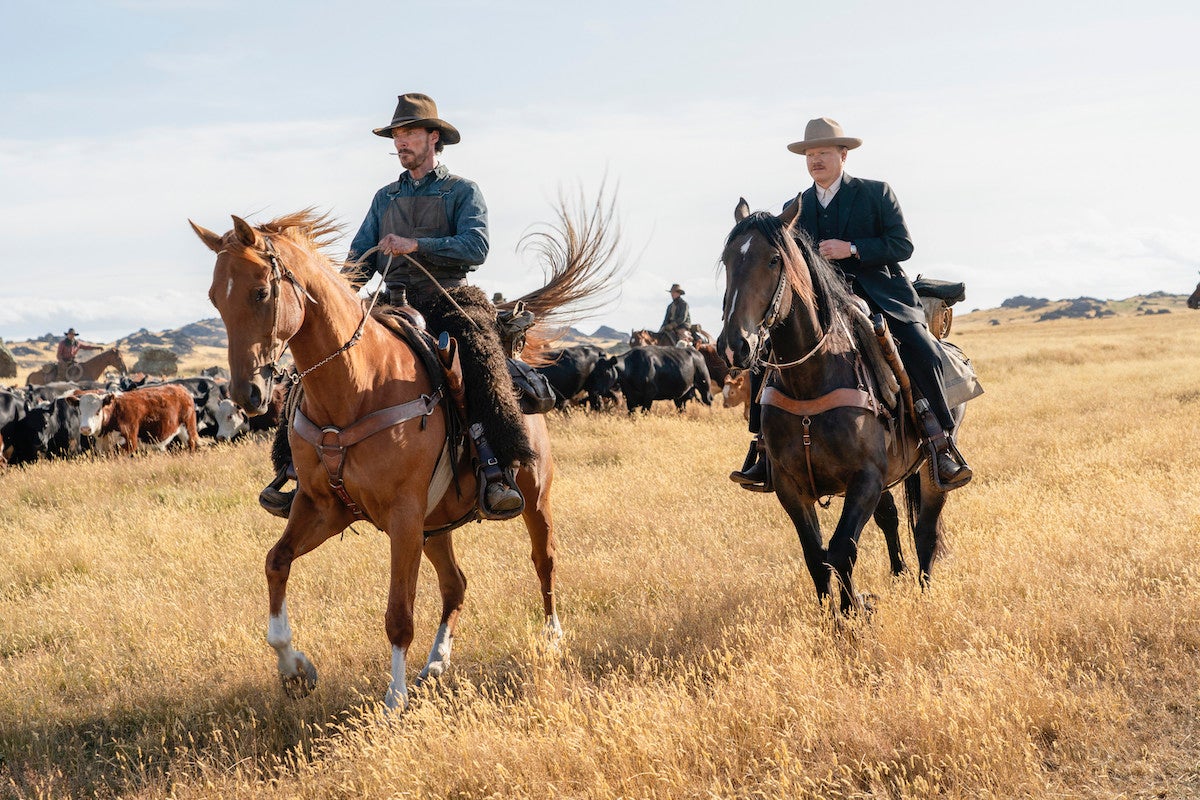
Part of the reason this movie works is that, as a viewer, you're never quite sure where it's going to go. Phil's overt hatred for, well, literally everything, is clearly masking a deeper self-loathing, but his casual cruelty is so intense that it makes it difficult to feel much in the way of sympathy for him. His incessant meanness drives his new sister-in-law to drink and makes everyone from his brother to his own parents uncomfortable. He takes pleasure in destroying beautiful things simply because he can. If Phil had suddenly dropped dead at any point during this film I'm not sure that anyone---either onscreen or watching at home---would have mourned his loss.
Yet, Phil's initial nastiness toward young Peter is clearly wrapped up in his conflicted feelings about his own sexuality and his oft-referenced, but never fully explained relationship with his former mentor, the fantastically named Bronco Henry. His deep and obvious self-hatred plays out most clearly in the performative nature of his persona---the entire idea of Phil revolves around his idea of what perceived masculinity looks like and his lifelong attempt to mimic that type in his own life. From his crowd of leering cowboy friends to his swaggering exterior and his refusal to bathe regularly, these are all choices he makes in order to try to pass as something he's not.
The cracks in Phil's emotional armor--and the sly, careful placed breadcrumbs that lead to the film's controversial ending---are, of course, much more evident in a second viewing, once you're aware that the story you're watching has more in common with a slow burn thriller or a murder mystery than it does the Western whose clothes it wears. In this day and age, when it's difficult enough to get a modern audience to pay attention to a movie once the whole way through, you have to respect Campion's gutsiness for disguising her film so thoroughly that it doesn't fully open up until you watch it for a second time. And yet, that's precisely the sort of movie The Power of the Dog is.
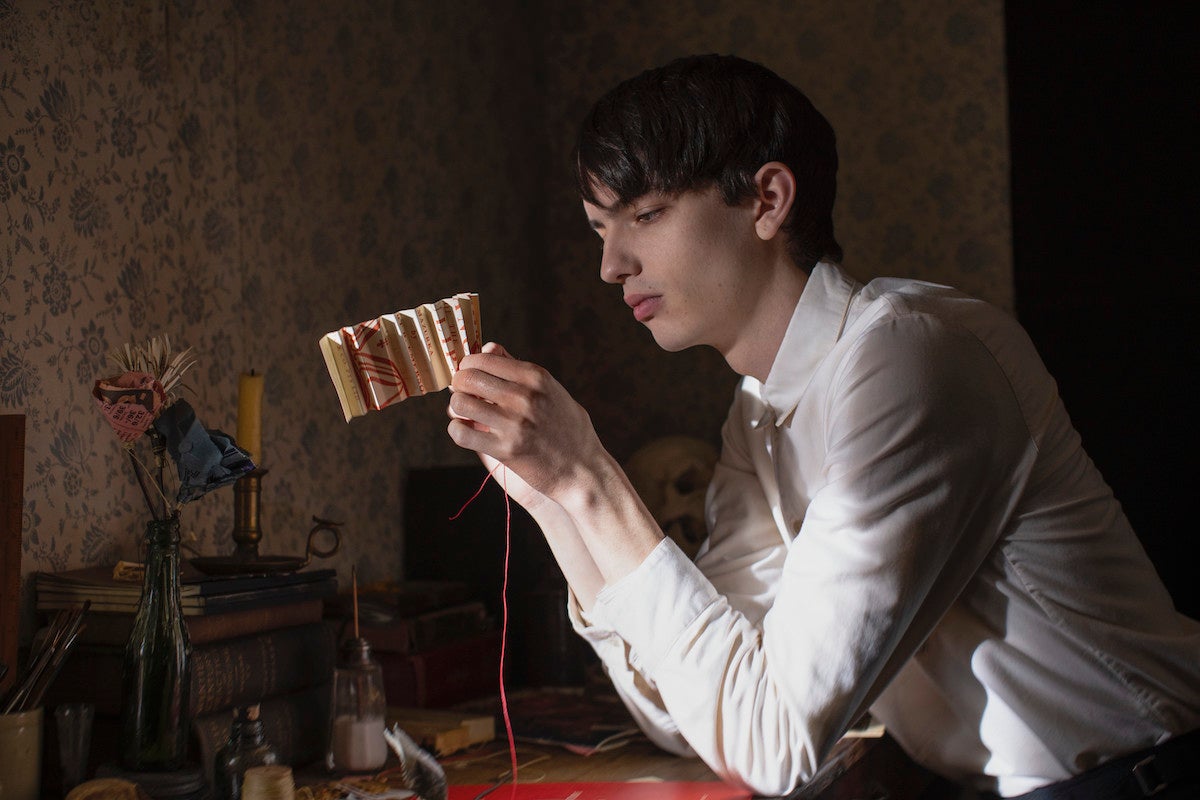
Of course, whether you view that fact as a failure of the film itself is, of course, a viewer's prerogative. There is so much tension throughout Campion's film, a consistently escalating sense of dread that snakes throughout this beautifully rugged landscape and surrounds its half-dressed cowboys and lingers in the dirt that covers over everything. But for a good half of the movie, we spend our time being afraid of the wrong things, assuming that the story is being driven by specific desires and actions, and when the ending turn comes and we realize a lot of what we'd assumed about these characters and the story the movie is telling is wrong, well. It's a lot to take in.
But as some of those moments---looking backward or on a second watch---become clearer, it's evident how carefully plotted this film is, and how much it depends on our own assumptions as viewers about what we're watching. The story of The Power of the Dog not only becomes more tragic and disturbing once you realize what's going on, and can see the breadcrumbs that have been so carefully laid along the way, both through the narrative itself and the individual performances within it. Cumberbatch's work is wonderful enough when you think you think that Phil is simply a sadist, but when you can clearly see all the layers in his character, it becomes something extraordinary. And the same goes double for Smit-McPhee's Peter, whose secrets live in his silences, in his unspoken reactions to those around him, and in the things he doesn't say.
Whether you like The Power of the Dog more after you find out all its secrets, or whether you feel betrayed by a narrative that, while it does not outright mislead you, is not always completely forthright with those that are watching it, it's certainly difficult not to admire its moxie and its willingness to tell a story that is not at all as simple as it appears.
The Power of the Dog is now streaming on Netflix.


